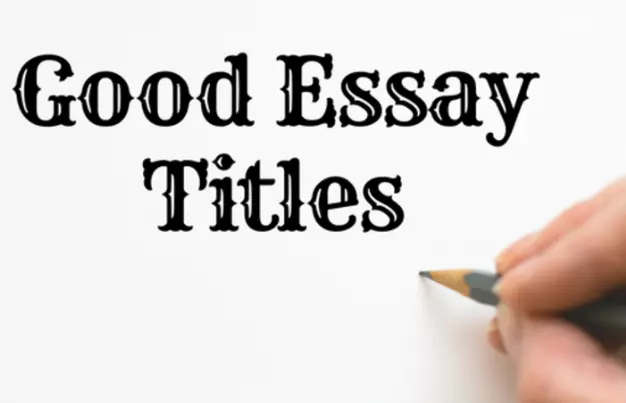Are Essay Titles italicized: How to Italicize Words in essays

The issue of italicization of essays is a confusing issue for some students. This is because they do not know if italicization is right, or they simply do not know when to italicize words, phrases, or entire sentences within an essay.
Since this issue confuses some, it is best to explore it in detail in this article. We will know the answer to the question and extend the same to titles. We will also explore some tips on how to italicize some words and phrases in essay titles.
Are Essay Titles Italicized?
Essay titles be italicized if the words are non-English, Italics, or represent works of literature like books and plays. However, essay italicization does not apply to the entire essay. It only applies to some parts of the essay or specific words or phrases that need to be italicized. You cannot italicize the entire essay because it is not academically allowed and makes it unprofessional.
However, to refresh your mind, you should use italics in cases where you have a title that includes names of vehicles, large works, television series, or movies.

Titles of plays, books, and other forms of works of art should also be italicized within the title to set them apart from the surrounding text.
However, you should note that there are various formats that an essay can take depending on the instructions given by your teacher or professor.
Such formats can include APA, MLA, Chicago/Turabian, Harvard, and so on.
They will have different requirements when it comes to italicization. Therefore, follow the instructions carefully when italicizing words within the title.
That being said, what is the major reason why some words, phrases, or entire sentences require to be italicized? The reason is emphasis. Some parts of the essay need to be emphasized so that the reader can take note of them.
For example, you can have a sentence where you are required to mention something that readers should take note of. How will you ensure that the readers instantly see the word(s) and take note of it?
The easiest and academically acceptable way is to italicize the word(s) so that they can stand out from the rest of the words within a sentence.
However, creating emphasis is not the only reason why you can italicize some parts of your essay. The next section of this article will discuss the various instances when you can italicize words in an essay.
Get a Brilliant Essay today!
Let our essay writing experts help you get that A in your next essay. Place your order today, and you will enjoy the benefits.
Instances When to Italicize Words in an Essay
1. Literary Works
For those of us who are not sure what literary works are, they include books, newspaper articles, journals, anthologies, conference papers, reports, working papers, letters, poetry, novels, song lyrics, computer programs and software, emails, databases, compilations, and tables. Literary works are copyrighted, whether they are published or unpublished.

Now, imagine you are writing something in your essay concerning some literary work, such as a novel.
In such an instance, you will be required to include the title or name of the publication within your essay.
To ensure that the readers easily take note of the name or title of the literary work, you will need to italicize it.
This will also separate it from the rest of the text, which will not be italicized. Below are some examples of how literary works should appear:
- Newspapers – for example, Wall Street Journal, USA Today, San Francisco Chronicle, etc.
- Magazines – for example, Cosmopolitan, Time, Newsweek, and so on
- Website names – for example, Purdue.com.
- Academic journals – for example, Journal of Higher Education, Journal of Applied Sciences, and so on.
2. Some Quotes
There are times when you would be required to quote directly from another source to elaborate your claim within the essay.
However, you cannot directly quote from the source without italicizing and then including an in-text citation at the end of the quote. If you do not italicize quotes and cite them, you will have committed plagiarism.
Italicizing some quotes, in this case, indicates that the text does not belong to you but it is the property of another author. Therefore, italicizing helps in acknowledging that the text belongs to specific authors and not you.
3. Italics Words
Some words should always be presented in italics. For example, botanical words that are used to scientifically name organisms should always be italicized. For example, the scientific name for a lion should be written in italics as Panthera Leo.
Furthermore, some words are not part of the scientific naming system of organisms but will still be required to be italicized. Such words are many, and as a student, you should be aware of them and italicize them accordingly when including them in your essay.
4. Titles of Literature
Another instance where you should italicize words in an essay includes titles of standalone works and titles of creative works. You should always italicize standalone works like full plays and books.
Titles of sacred texts, like the Christian Bible, should also be italicized when they are included in your essay. This is especially the case when analyzing the complete works in your essay.
For example, if your essay is analyzing a specific Harry Potter book, a statement in your essay may appear like this: In the book titled Harry Potter and the Deathly Hallows, there are various elements of style that can be noted.
For sacred or religious texts like the King James Version of the Christian Bible, a statement in your essay may appear like this:
When trying to understand the meaning of the language used in the King James Bible, you may need to understand its context.
If you find yourself in a situation where you need to include the title of creative work in the body of your essay, you should italicize it. This should only include titles of standalone creative works. They include:
- Works of art, for example, Monet’s Water Lilies, Leonardo da Vinci’s Mona Lisa, Van Gogh’s Starry Night
- Album/CD titles, for example, Michael Jackson’s Thriller album, Parachutes by Coldplay
- Movies, for example, Batman, Casablanca, Twilight
- Television shows, for example, American Idol, BBC’s Woman’s Hour, Family Guy, The Simpsons
- Radio programs/podcasts, for example, 247 Sports Radio on Campus, Pioneering Today podcast
5. Unfamiliar and Foreign Words
When you are required to include unfamiliar or foreign words within your essay, it is best to italicize them. Unfamiliar words can also include technical words.
6. Legal Cases
When you are writing an essay concerning some legal issues, you may be required to refer to some actual legal cases to support your arguments or claims.
To ensure that the reader takes note of the legal case, you should italicize the case. For example, you may state: “The outcomes of the case of Brown v. Board of Education indicate that…”
Need Help with your Homework or Essays?
Tips and Considerations When Using Italics in Essays
The first tip is to consider the words, phrases, or sentences that are supposed to be emphasized. Those can include literary works, quotes, words that are supposed to be written in italics, standalone titles, titles of creative works, foreign words, unfamiliar words, and legal cases.
The second tip is to consider the essay format per the instructions or instructor. This is because different formats will allow some words, phrases, or sentences to be italicized, while other formats may limit italicization. As such, consult the writing manual for your selected format.
You should also consider the recommendations from your instructor because they may provide unique instructions that may deviate from the standard conventions of italicization within an essay.
Check out some tips on using questions in an essay and learn more about some non-conventional ways of writing essays.

Josh Jasen or JJ as we fondly call him, is a senior academic editor at Grade Bees in charge of the writing department. When not managing complex essays and academic writing tasks, Josh is busy advising students on how to pass assignments. In his spare time, he loves playing football or walking with his dog around the park.




